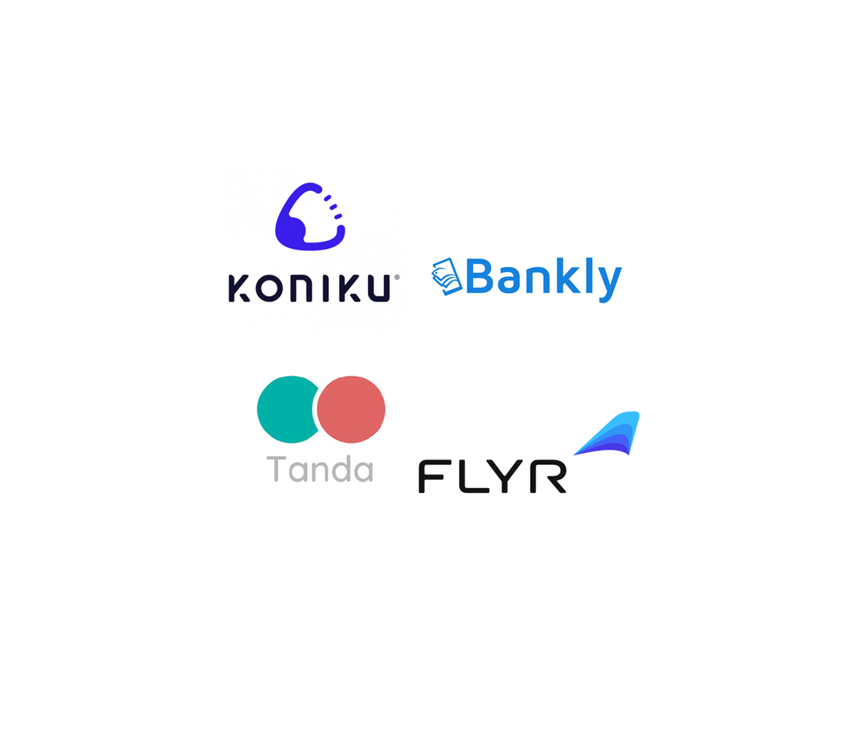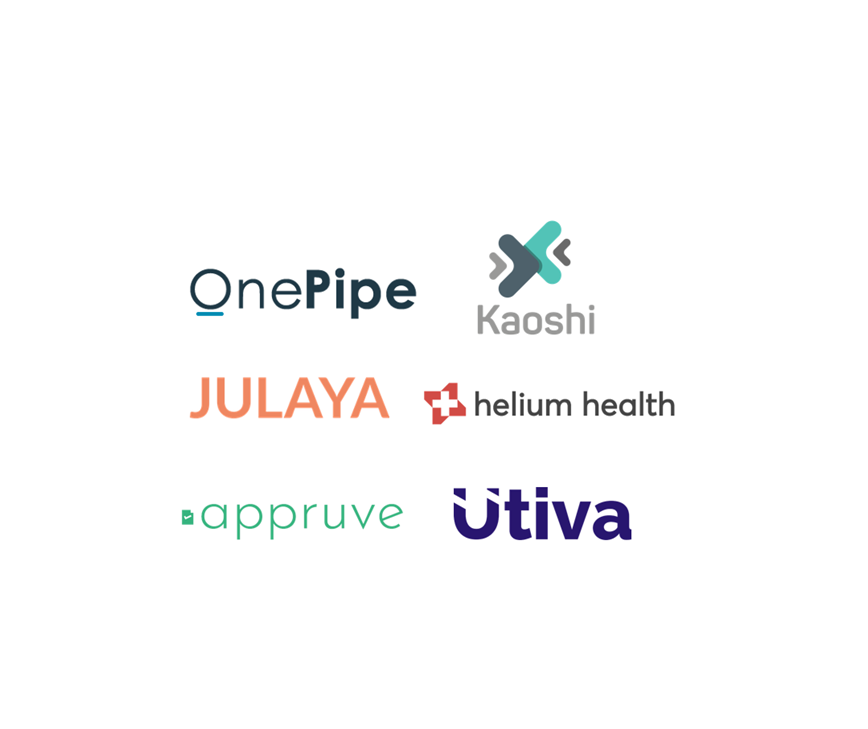Feature/OPED
Setting Africa up for a Post-Mao China Type Economic Revolution, the Zedcrest Perspective

By Adedayo Amzat, GMD, Zedcrest Group
The People’s Republic of China was officially founded in 1949, but the economy didn’t really find its feet until the start of economic reforms in 1978, after the topsy turvy turbulence of the two periods of “The Great Leap Forward” 1958-1960 and the “Cultural Revolution 1966-1976.”
What changed in China? Emerging from decades of war before the founding of the People’s Republic of China in 1949, Soviet-style socialism became a focal point of governance, largely due to the expected nationalistic tendencies arising from periodic civil wars and at least two main war programs against regional arch-nemesis, the Empire of Japan. Socialism led to mixed results with massive state-controlled investments in the industry.
However, the lack of private incentives and public disillusion with Marxist-Leninism led to the misallocation of resources, and an eventual collapse of the system. Sustainable growth didn’t really start until the advent of Deng Xiaoping as the Supreme leader of the People’s Republic of China from 1978. Despite being a socialist republic, Deng unleashed a culture of innovation and market-economy reforms, the eventual bedrock of the tremendous economic development of China till today, taking GDP size from 50billion dollars in 1960 to 14.3 trillion dollars in 2020, an economic miracle by all standards.

When we started Zedcrest in 2013, our conviction was that Africa was exactly where China was in the early 80s and despite continuing struggles, has the opportunity to develop continent-wide growth in a similar fashion as China. All it would take is focused leadership, a MORE connected continent and an explosion of Innovation across the continent. We then set our vision along with those tenets, with the dream to build a core of African-wide financial services businesses and a satellite of Investment portfolios. Seven years later and achieving domain leadership in the financial markets, consumer lending and now Investment management, we have now turbocharged both our continental ambition in our core businesses and in our early-stage investing initiatives to support Innovation across the continent.
Officially starting in 2019, we have invested rapidly to test our hypothesis and make up for lost grounds. Investing directly and in partnerships with co-investors and syndicates, we have backed 30+ early-stage businesses with cheque sizes ranging from $25,000 to $250,000 (US Dollars). With the potential of the continent becoming more established with the surging interests from larger and seasoned global investors, we have joined the likes of Idris Bello at Afropreneur, and Kola Aina at Ventures Partners as “discovery investors”, investing early enough and helping founders through the rough periods of market and business validation.
A STOPLIGHT ON SOME KEY INVESTMENTS
Koniku – ‘Intelligence is Natural’ led by Osh Agabi, is building sensing and thinking machines, with synthetic neurobiology at its core. Koniku’s flagship device, the “Koniku Kore” is a wetware device that can detect and interpret smells and process that data for use in aviation security, policing and medical research. A future where diseases and threats can be detected by the power of “smell” is one envisaged by Koniku.
The company recently announced its partnership with the global aircraft manufacturer, Airbus.
Koniku’s work for Airbus is in aircraft and airport security. Both companies are co-developing solutions for detecting biological hazards and spotting chemical and explosive threats. Airbus will install Koniku’s Konikore; a small device that looks like a jellyfish. The device can perform the bomb-sniffing roles that have come to be associated with police dogs. In the best conditions, Konikores are expected to detect substances within 10 seconds.
Bankly – Banking the Unbanked
We met Tomi and Fred in 2019, and immediately connected with the glint in their eyes. Despite the explosion of Fintech services, most digital banking products are built almost exclusively for the about 30million already banked people. Who is working on bringing the remaining 50million adults into the digital world? This is where Bankly’s work becomes very important. We led the pre-seed round of Bankly in 2019 and it has been beautiful to see their work blossom.
Working with agents, Bankly has built custom solutions to onboard unbanked users onto its digital platforms, leading with savings as a product.
Bankly recently concluded a seed raise of $2million, led by new investors Flutterwave and Vault.
Bento Africa – The Operating System for Salaries and Lives
Formerly known as Verifi, the leading payroll software solution firm has made a lot of progress in the last two years while also rebranding its name to Bento Africa. Bento believes that Salaries are the operating system that life is built upon and has partnered with other startups like Nigerian edtech startup, Schoolable; property rental platform, Kwaba; consumer firm, Zedvance among others to enable its users to do more.
TalentQL: Boosting the Competitiveness of African Talents
Understanding the importance and value of tech talent in Nigeria and the diaspora, TalentQL, one of Zedcrest’s portfolio companies is creating a diverse and sustainable pipeline for tech talent for companies anywhere in the world.
TalentQL recently got accepted into Techstars Toronto. The African-focused talent recruitment and outsourcing company joined nine other startups in the accelerator’s class of 2021.
Other portfolio companies are:

…Driving the Next Generation of Fintech Solutions
Onepipe
Working with open banking frameworks, Onepipe is an aggregator of Application Software Integrations (APIs) into a standardized gateway, offering businesses the opportunity to be a one-stop-shop for digital financial services with one integration.
Spektra
Prince Boakye Boampong is building a unified alternative payment network that does not require a bank account for over 1billion Africans with Spektra. Essentially, he is building Alipay, but for Africa.
Tanda
In funding Kenya startup, Tanda, Zedcrest is supporting the founder, Geoffrey in promoting financial inclusion by converting neighbourhood dukas (micro-retailers) who account for over 70% of consumer purchases across Africa into a one-stop-shop for basic financial services.
Lenco is building a better banking and expense management experience for businesses across Africa
Indicina is building Africa’s credit infrastructure by enabling the much-needed risk innovation
Kaoshi is leveraging Open Banking API technology to unlock cross border finance, specifically the finances of the diaspora to their home countries.
Julaya: Starting out of Francophone Ivory Coast, Julaya is building the digital account for African small and medium-sized businesses.
Fintor: The Los-Angeles based company turns real estate investment opportunities into micro-equity shares starting at around $5 to make investing in real estate available to everyone.
Thundr: A mobile-first equities trading platform that is designed to make investing easy for both green and expert investors alike. The YC-backed startup is pioneering commission-free investing in Egypt.
Yoello is a payments platform building infrastructure that connects banks and payment networks to merchants’ consumers.
SUDO: An API platform that enables you instantly issue physical and virtual cards with more control & flexibility at scale
….Revolutionising Healthcare
Helium Health is a startup leading the digitization of Africa’s medical industry by providing a suite of cutting-edge technology solutions for all healthcare stakeholders in emerging markets. The startup raised $8million in 2020 to fund its African wide expansion.
Amara Medicare aims to revolutionize the 3-in-1 services of Ophthalmology, Dental and ENT practice.
Lora DiCarlo is changing the world by empowering individuals to embrace their sexuality with positivity and confidence, with technology that solves our most important sexual health and wellness issues. The company announced the coming on board of Cara Delevingne as co-owner and creative advisor.
Contraline is a medical device company developing a long-lasting, non-hormonal, and reversible male contraceptive using advancements in hydrogel technology.
Bypa-ss is digitizing healthcare information exchange between healthcare providers to deliver the best quality of care to their patients.
….Building the Future of Education
Abwaab: Founded in 2019 by former Uber, Careem, and Mawdoo executives, Abwaab’s online platform enables secondary school students in the Middle East & North Africa to learn different subjects at their own pace with the help of engaging video lessons and interacting with tutors, test themselves using tests and quizzes, and track their performance using different tools. The company just completed a $5.1million seed round and is now live in Jordan, Egypt, Saudi, and Palestine.
Utiva: Utiva is building talents for the future of work. With Africa needing to retrain a generation of workers to adopt the required skills set for the digital economy, Utiva is leading this mission by combining remote learning models with instructor-led approaches to help people acquire the skills they need to make a transition into new tech roles.
….Building Logistics Infrastructure
Freterium: Moroccan startup, Freterium is giving superpowers to the logistics team with its AI-driven platform. Freterium’s cloud-based transport management platform offers the easiest and most automated way for manufacturers, retailers and logistics firms, to manage their daily road freight shipments.
SOTE: Based in Kenya, Sote is building the digital logistics infrastructure for Africa. SOTE’s mission is to grow the GDP of the continent by facilitating growth of trade. The company provides a combination of ERP solutions, underwriting models, and software-driven supply chain services across the continent.
FLYR Labs FLYR’s cirrus platform is a modern and cutting edge Revenue Operating System (ROS) for the airline industry.
XTI Aircraft Company is a cleantech aviation company developing the world’s first hybrid-electric long-range vertical takeoff airplane.
….Providing Basic Human Needs & Improving Sustainability
Zenfix is providing savoury and nutrient-dense foods in Nigeria.
Zumi Africa: Zumi is revolutionizing the apparel supply chain in Africa by connecting apparel wholesalers and retailers in a transparent, affordable marketplace.
Tagaddod is a renewable energy and waste management company started in February 2013 and operating in Egypt. Currently focusing on clean fuels, Tagaddod is working on biodiesel production from Vegetable Oils.
….Providing Enterprise Services
Simpu helps businesses start and nurture quality relationships with their customers. With a one-tap experience platform, businesses can interact with customers across multiple channels in real-time.
Appruve builds identity and financial solutions for firms to verify data they collect from their customers across their lifecycle. Appruve provides verification services around identity and financial profiles, fraud detection and management.
Youverify is building trust in Africa by helping businesses and individuals confirm identity and physical addresses. Using artificial intelligence, Youverify confirms a user’s identity document and compares it with their facial biometrics. This information can be cross-checked against more than 300 databases locally and globally.
Feature/OPED
How Christians Can Stay Connected to Their Faith During This Lenten Period

It’s that time of year again, when Christians come together in fasting and prayer. Whether observing the traditional Lent or entering a focused period of reflection, it’s a chance to connect more deeply with God, and for many, this season even sets the tone for the year ahead.
Of course, staying focused isn’t always easy. Life has a way of throwing distractions your way, a nosy neighbour, a bus driver who refuses to give you your change, or that colleague testing your patience. Keeping your peace takes intention, and turning off the noise and staying on course requires an act of devotion.
Fasting is meant to create a quiet space in your life, but if that space isn’t filled with something meaningful, old habits can creep back in. Sustaining that focus requires reinforcement beyond physical gatherings, and one way to do so is to tune in to faith-based programming to remain spiritually aligned throughout the period and beyond.
On GOtv, Christian channels such as Dove TV channel 113, Faith TV and Trace Gospel provide sermons, worship experiences and teachings that echo what is being practised in churches across the country.
From intentional conversations on Faith TV on GOtv channel 110 to true worship on Trace Gospel on channel 47, these channels provide nurturing content rooted in biblical teaching, worship, and life application. Viewers are met with inspiring sermons, reflections on scripture, and worship sessions that help form a rhythm of devotion. During fasting periods, this kind of consistent spiritual input becomes a source of encouragement, helping believers stay anchored in prayer and mindful of God’s presence throughout their daily routines.
To catch all these channels and more, simply subscribe, upgrade, or reconnect by downloading the MyGOtv App or dialling *288#. You can also stream anytime with the GOtv Stream App.
Plus, with the We Got You offer, available until 28th February 2026, subscribers automatically upgrade to the next package at no extra cost, giving you access to more channels this season.
Feature/OPED
Turning Stolen Hardware into a Data Dead-End

By Apu Pavithran
In Johannesburg, the “city of gold,” the most valuable resource being mined isn’t underground; it’s in the pockets of your employees.
With an average of 189 cellphones reported stolen daily in South Africa, Gauteng province has become the hub of a growing enterprise risk landscape.
For IT leaders across the continent, a “lost phone” is rarely a matter of a misplaced device. It is frequently the result of a coordinated “snatch and grab,” where the hardware is incidental, and corporate data is the true objective.
Industry reports show that 68% of company-owned device breaches stem from lost or stolen hardware. In this context, treating mobile security as a “nice-to-have” insurance policy is no longer an option. It must function as an operational control designed for inevitability.
In the City of Gold, Data Is the Real Prize
When a fintech agent’s device vanishes, the $300 handset cost is a rounding error. The real exposure lies in what that device represents: authorised access to enterprise systems, financial tools, customer data, and internal networks.
Attackers typically pursue one of two outcomes: a quick wipe for resale on the secondary market or, far more dangerously, a deep dive into corporate apps to extract liquid assets or sellable data.
Clearly, many organisations operate under the dangerous assumption that default manufacturer security is sufficient. In reality, a PIN or fingerprint is a flimsy barrier if a device is misconfigured or snatched while unlocked. Once an attacker gets in, they aren’t just holding a phone; they are holding the keys to copy data, reset passwords, or even access admin tools.
The risk intensifies when identity-verification systems are tied directly to the compromised device. Multi-Factor Authentication (MFA), widely regarded as a gold standard, can become a vulnerability if the authentication factor and the primary access point reside on the same compromised device. In such cases, the attacker may not just have a phone; they now have a valid digital identity.
The exposure does not end at authentication. It expands with the structure of the modern workforce.
65% of African SMEs and startups now operate distributed teams. The Bring Your Own Device (BYOD) culture has left many IT departments blind to the health of their fleet, as personal devices may be outdated or jailbroken without any easy way to know.
Device theft is not new in Africa. High-profile incidents, including stolen government hardware, reinforce a simple truth: physical loss is inevitable. The real measure of resilience is whether that loss has any residual value. You may not stop the theft. But you can eliminate the reward.
Theft Is Inevitable, Exposure is Not
If theft cannot always be prevented, systems must be designed so that stolen devices yield nothing of consequence. This shift requires structured, automated controls designed to contain risk the moment loss occurs.
Develop an Incident Response Plan (IRP)
The moment a device is reported missing, predefined actions should trigger automatically: access revocation, session termination, credential reset and remote lock or wipe.
However, such technical playbooks are only as fast as the people who trigger them. Employees must be trained as the first line of defence —not just in the use of strong PINs and biometrics, but in the critical culture of immediate reporting. In high-risk environments, containment windows are measured in minutes, not hours.
Audit and Monitor the Fleet Regularly
Control begins with visibility. Without a continuous, comprehensive audit, IT teams are left responding to incidents after damage has occurred.
Opting for tools like Endpoint Detection and Response (EDR) allows IT teams to spot subtle, suspicious activities or unusual access attempts that signal a compromised device.
Review Device Security Policies
Security controls must be enforced at the management layer, not left to user discretion. Encryption, patch updates and screen-lock policies should be mandatory across corporate devices.
In BYOD environments, ownership-aware policies are essential. Corporate data must remain governed by enterprise controls regardless of device ownership.
Decouple Identity from the Device
Legacy SMS-based authentication models introduce avoidable risk when the authentication channel resides on the compromised handset. Stronger identity models, including hardware tokens, reduce this dependency.
At the same time, native anti-theft features introduced by Apple and Google, such as behavioural theft detection and enforced security delays, add valuable defensive layers. These controls should be embedded into enterprise baselines rather than treated as optional enhancements.
When Stolen Hardware Becomes Worthless
With POPIA penalties now reaching up to R10 million or a decade of imprisonment for serious data loss offences, the Information Regulator has made one thing clear: liability is strict, and the financial fallout is absolute. Yet, a PwC survey reveals a staggering gap: only 28% of South African organisations are prioritising proactive security over reactive firefighting.
At the same time, the continent is battling a massive cybersecurity skills shortage. Enterprises simply do not have the boots on the ground to manually patch every vulnerability or chase every “lost” terminal. In this climate, the only viable path is to automate the defence of your data.
Modern mobile device management (MDM) platforms provide this automation layer.
In field operations, “where” is the first indicator of “what.” If a tablet assigned to a Cape Town district suddenly pings on a highway heading out of the city, you don’t need a notification an hour later—you need an immediate response. An effective MDM system offers geofencing capabilities, automatically triggering a remote lock when devices breach predefined zones.
On Supervised iOS and Android Enterprise devices, enforced Factory Reset Protection (FRP) ensures that even after a forced wipe, the device cannot be reactivated without organisational credentials, eliminating resale value.
For BYOD environments, we cannot ignore the fear that corporate oversight equates to a digital invasion of personal lives. However, containerization through managed Work Profiles creates a secure boundary between corporate and personal data. This enables selective wipe capabilities, removing enterprise assets without intruding on personal privacy.
When integrated with identity providers, device posture and user identity can be evaluated together through multi-condition compliance rules. Access can then be granted, restricted, or revoked based on real-time risk signals.
Platforms built around unified endpoint management and identity integration enable this model of control. At Hexnode, this convergence of device governance and identity enforcement forms the foundation of a proactive security mandate. It transforms mobile fleets from distributed risk points into centrally controlled assets.
In high-risk environments, security cannot be passive. The goal is not recovery. It is irrelevant, ensuring that once a device leaves authorised hands, it holds no data, no identity leverage, and no operational value.
Apu Pavithran is the CEO and founder of Hexnode
Feature/OPED
Daniel Koussou Highlights Self-Awareness as Key to Business Success

By Adedapo Adesanya
At a time when young entrepreneurs are reshaping global industries—including the traditionally capital-intensive oil and gas sector—Ambassador Daniel Koussou has emerged as a compelling example of how resilience, strategic foresight, and disciplined execution can transform modest beginnings into a thriving business conglomerate.
Koussou, who is the chairman of the Nigeria Chapter of the International Human Rights Observatory-Africa (IHRO-Africa), currently heads the Committee on Economic Diplomacy, Trade and Investment for the forum’s Nigeria chapter. He is one of the young entrepreneurs instilling a culture of nation-building and leadership dynamics that are key to the nation’s transformation in the new millennium.
The entrepreneurial landscape in Nigeria is rapidly evolving, with leaders like Koussou paving the way for innovation and growth, and changing the face of the global business climate. Being enthusiastic about entrepreneurship, Koussou notes that “the best thing that can happen to any entrepreneur is to start chasing their dreams as early as possible. One of the first things I realised in life is self-awareness. If you want to connect the dots, you must start early and know your purpose.”
Successful business people are passionate about their business and stubbornly driven to succeed. Koussou stresses the importance of persistence and resilience. He says he realised early that he had a ‘calling’ and pursued it with all his strength, “working long weekends and into the night, giving up all but necessary expenditures, and pressing on through severe setbacks.”
However, he clarifies that what accounted for an early success is not just tenacity but also the ability to adapt, to recognise and respond to rapidly changing markets and unexpected events.
Ambassador Koussou is the CEO of Dau-O GIK Oil and Gas Limited, an indigenous oil and natural gas company with a global outlook, delivering solutions that power industries, strengthen communities, and fuel progress. The firm’s operations span exploration, production, refining, and distribution.
Recognising the value of strategic alliances, Koussou partners with business like-minds, a move that significantly bolsters Dau-O GIK’s credibility and capacity in the oil industry. This partnership exemplifies the importance of building strong networks and collaborations.
The astute businessman, who was recently nominated by the African Union’s Agenda 2063 as AU Special Envoy on Oil and Gas (Continental), admonishes young entrepreneurs to be disciplined and firm in their decision-making, a quality he attributed to his success as a player in the oil and gas sector. By embracing opportunities, building strong partnerships, and maintaining a commitment to excellence, Koussou has not only achieved personal success but has also set a benchmark for future generations of African entrepreneurs.
His journey serves as a powerful reminder that with determination and vision, success is within reach.
-

 Feature/OPED6 years ago
Feature/OPED6 years agoDavos was Different this year
-
Travel/Tourism10 years ago
Lagos Seals Western Lodge Hotel In Ikorodu
-

 Showbiz3 years ago
Showbiz3 years agoEstranged Lover Releases Videos of Empress Njamah Bathing
-

 Banking8 years ago
Banking8 years agoSort Codes of GTBank Branches in Nigeria
-

 Economy3 years ago
Economy3 years agoSubsidy Removal: CNG at N130 Per Litre Cheaper Than Petrol—IPMAN
-

 Banking3 years ago
Banking3 years agoSort Codes of UBA Branches in Nigeria
-

 Banking3 years ago
Banking3 years agoFirst Bank Announces Planned Downtime
-

 Sports3 years ago
Sports3 years agoHighest Paid Nigerian Footballer – How Much Do Nigerian Footballers Earn





















